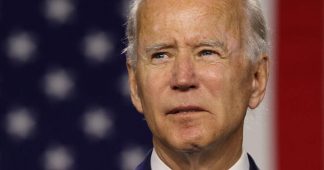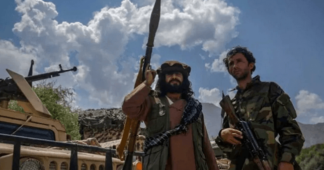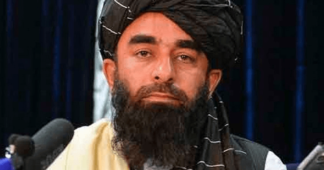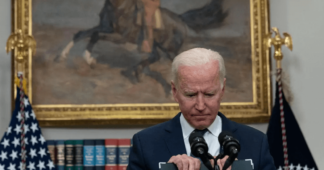Detailed notes of three classified calls provided to POLITICO show top Pentagon officials knew of imminent threat, but struggled to close Abbey Gate.
Just 24 hours before a suicide bomber detonated an explosive outside Hamid Karzai International Airport, senior military leaders gathered for the Pentagon’s daily morning update on the deteriorating situation in Afghanistan.
Speaking from a secure video conference room on the third floor of the Pentagon at 8 a.m. Wednesday — or 4:30 p.m. in Kabul — Defense Secretary Lloyd Austin instructed more than a dozen of the department’s top leaders around the world to make preparations for an imminent “mass casualty event,” according to classified detailed notes of the gathering shared with POLITICO.
During the meeting, Gen. Mark Milley, the chair of the Joint Chiefs of Staff, warned of “significant” intelligence indicating that the Islamic State’s Afghanistan affiliate, ISIS-K, was planning a “complex attack,” the notes quoted him as saying.
Commanders calling in from Kabul relayed that the Abbey Gate, where American citizens had been told to gather in order to gain entrance to the airport, was “highest risk,” and detailed their plans to protect the airport.
“I don’t believe people get the incredible amount of risk on the ground,” Austin said, according to the classified notes.
On a separate call at 4 that afternoon, or 12:30 a.m. on Thursday in Kabul, the commanders detailed a plan to close Abbey Gate by Thursday afternoon Kabul time. But the Americans decided to keep the gate open longer than they wanted in order to allow their British allies, who had accelerated their withdrawal timeline, to continue evacuating their personnel, based at the nearby Baron Hotel.
Continue reading at www.politico.com
We remind our readers that publication of articles on our site does not mean that we agree with what is written. Our policy is to publish anything which we consider of interest, so as to assist our readers in forming their opinions. Sometimes we even publish articles with which we totally disagree, since we believe it is important for our readers to be informed on as wide a spectrum of views as possible.
In the particular case of Afghanistan, it is very difficult to verify the information coming from or regarding this country. We are also certain that much of it is being used for various information/propaganda wars.











